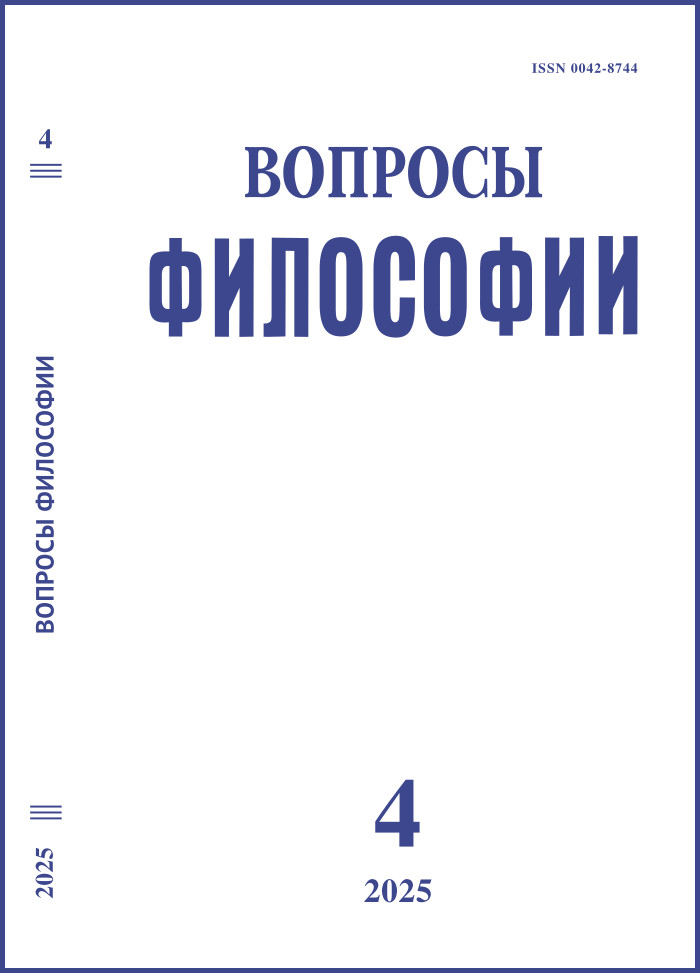Религиозные схемы в социальных теориях
DOI:
https://doi.org/10.21146/0042-8744-2025-4-27-38Ключевые слова:
политеизм, монотеизм, Гегель, методология, конструктивизм, объективизм, социология, рефлексия, диалектикаАннотация
В статье обсуждается методологическая проблема синтеза противоположных социологических теорий. Базовые принципы объединения противоположных позиций в единую систему были разработаны Гегелем и нашли наиболее полное воплощение в его интерпретации Богочеловеческой идеи христианства, рассматривавшейся философом в качестве диалектически-рефлексивного синтеза принципов моно-, поли- и пантеизма. Обоснованное в социологии положение об обществе как подлинном объекте религиозного поклонения позволило авторам предположить наличие структурного сходства между моно-, поли- и пантеистическими религиозными учениями и социологическими теориями. Исследование подтвердило: выделенные Гегелем онтологические и нормативные черты монотеистического и политеистического мировоззрений присутствуют в объектной социологии Дюркгейма и в конструктивизме, соответственно. При этом общей чертой рассмотренных учений оказался онтологический дуализм: противопоставленность Бога и Человека в религиозных доктринах, Общества и Человека в социальных теориях. Подобная неполная рефлексивность в гегелевской теории разрешалась через учение о богочеловеческом рефлексивном триединстве, включающем в себя пантеистический элемент. В завершающей части авторы ставят вопрос о методологических условиях, при которых «пансоциологизм» мог бы стать основанием для «триединого синтеза» антиномических социальных теорий.

